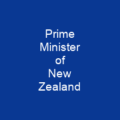The Role of the Prime Minister in Canada: A Closer Look
Imagine a country where one person holds the key to governing, making decisions that affect millions. That’s what it means to be the prime minister of Canada. This position is not just any job; it’s a role steeped in history and tradition, yet constantly evolving with the times.
The Appointment Process: A Dance of Politics
Who gets to be the prime minister? It’s like choosing who will lead a grand orchestra. The governor general selects the individual most likely to command support from the majority in the House of Commons, often the leader of the party with the most seats.
The Constitutional Role: A Blend of Tradition and Modernity
Is there a written constitution that outlines this role? Not exactly. The prime minister’s position is modeled after the UK office but operates within the framework set by the Westminster system. This means they are appointed, serve at His Majesty’s pleasure, and play a crucial role in advising the Crown on royal prerogatives.
The Prime Minister’s Office: A Hub of Power
What does the prime minister do all day? They control key appointments, manage the legislative process, and serve as the head of government. But their power isn’t absolute; there are checks like revocation of confidence or caucus revolt.
The Prime Minister’s Office: A Vital Support System
How does the Prime Minister’s Office function? It’s like a well-oiled machine, providing support and managing the day-to-day operations. The office includes the Privy Council Office, which helps in making appointments and advising on policy.
The Prime Minister’s Lifestyle: A Blend of Public Service and Privacy
What does it take to be a prime minister? It involves living in two official residences—24 Sussex Drive in Ottawa and Harrington Lake, a country retreat in Gatineau Park. The job also comes with an armoured car for transportation and constant personal security from the Royal Canadian Mounted Police.
The Prime Minister’s Salary: A Matter of Public Interest
How much does it cost to be prime minister? As of April 2024, the annual salary is $406,200. This includes an MP’s salary and a prime minister’s additional salary, making them one of the highest-paid public servants in Canada.
The Legacy of Prime Ministers: A Mix of Politics and Personal Life
What happens after a prime minister leaves office? They can continue in politics or move to private enterprise. Some write memoirs, while others engage in various pursuits. The legacy of former prime ministers is often celebrated with state funerals and honors like the coat of arms augmentation.
The Prime Minister: A Position of Great Responsibility
The role of the prime minister of Canada is a complex one, blending tradition with modern governance. From selecting key appointments to leading the legislative process, their influence on Canadian society cannot be overstated. As we look at the history and current practices surrounding this position, it’s clear that the prime minister plays a pivotal role in shaping the future of our nation.

You want to know more about Prime Minister of Canada?
This page is based on the article Prime Minister of Canada published in Wikipedia (retrieved on March 10, 2025) and was automatically summarized using artificial intelligence.





